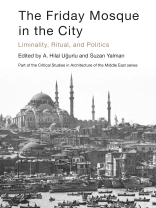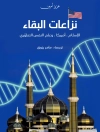Concerned with the relationship between Friday mosque and city in the Islamic context. Focusing particularly on the Friday mosque, the book aims at exploring the concept of liminal(ity) in spatial terms and discuss it in terms of the relationship between the Friday mosque and its surrounding urban context. Transition spaces/zones between the mosque and the urban context are discussed through the case studies from various contexts. In doing so, the manuscript reveals different forms of liminality in spatial sense.
Considers widely-studied topics such as the ‘Friday mosque’ or the ‘Islamic city’ through a fresh new lens, critically examining each case study in its own spatial urban and socio-cultural context. While these two well-known themes – concepts that once defined the field – have been widely studied by historians of Islamic architecture and urbanism, this collection specifically addresses the functional and spatial ambiguity or liminality between these spaces. Thus, instead of addressing the Friday mosque as the central signifier of the ‘Islamic city’, the articles in this volume provide evidence that there was (and continues to be) a tremendous variety in the way architectural borders became fluid in and around Friday mosques across the Islamic geography, from Cordoba to Jerusalem and from London to Lahore.
By historicizing different cases and contributing to our knowledge of the way human agency through ritual and politics shaped the physical and social fabric of the city, the papers collectively challenge the generalizing and reductionist tendencies in earlier scholarship. The disciplinary approaches are varied, and include archaeology, art history, history, epigraphy and architecture.
The original approach in the book, addressing of the topic of liminality from different points of view and in different periods, creates a fresh approach that invites students and scholars to think deeply about the imbrication of congregational mosques in the daily life of the cities that host them. Moreover, in considering mosque and city together, the mosque appears as a living space subject to change and history and made with political and social purpose, rather than as a holy space disconnected from the rest of the world.
Traditional studies of mosques focus on architecture and aesthetic language and try to establish a lineal development of the building typology connected to the history of Islam across different territories. The present study offers an alternative (though not competing) perspective where locality and politics play a major role in the materialization of the congregational mosque as a religious and communal space. The wide historical frame enables comparison of congregational mosques in different historical periods: it is particularly a strong contrast to see how the liminality of the mosque changes between the early and classical periods of Islam on one side and the more contemporary times on the other. The consideration of diverging cultural, political and sectarian settings is another interesting element of comparison.
Primary market will include scholars, academics and students working on or studying Islamic studies, particularly Islamic history, Islamic architecture and Islamic archaeology.
Also of relevance to architectural historians, architects, art historians, city planners, city historians, urban designers, architectural critics, historians, sociologists, archeologists, and those interested in religious studies, and in archaeology of religion.
สารบัญ
Acknowledgements vii
Introduction 1
A. Hilal Ug˘urlu and Suzan Yalman
Section I: Spatial Liminalities: Walls, Enclosures, and Beyond 19
Liminal Spaces in the Great Mosque of Cordoba: Urban Meaning
and Politico-Liturgical Practices 21
Susana Calvo Capilla
Lahore’s Badshahi Masjid: Spatial Interactions of the Sacred and the Secular 51
Mehreen Chida-Razvi
City as Liminal Space: Islamic Pilgrimage and Holy Sites in Jerusalem
During the Mamluk Period 75
Fadi Ragheb
Section II: Creating New Destinations, Constructing New Sacreds 123
Sanctifying Konya: The Thirteenth-Century Transformation of the
Seljuk Friday Mosque into a ‘House of God’ 125
Suzan Yalman
Inviolable Thresholds, Blessed Palaces, and Holy Friday Mosques:
The Sacred Topography of Safavid Isfahan 157
Farshid Emami
From the Kutubiyya to Tinmal: The Sacred Direction in Mu’minid Performance 197
Abbey Stockstill
Section III: Liminality and Negotiating Modernity 219
Perform Your Prayers in Mosques!: Changing Spatial and Political Relations
in Nineteenth-Century Ottoman Istanbul 221
A. Hilâl Ug˘urlu
Urban Morphology and Sacred Space: The Mashhad Shrine During the
Late Qajar and Pahlavi Periods 251
May Farhat
Towards a New Typology of Modern and Contemporary Mosque in Europe,
Including Russia and Turkey 277
Nebahat Avcıoğlu
Author Biographies 313
เกี่ยวกับผู้แต่ง
Mohammad Gharipour is professor of architecture and director of the Graduate Architecture Program at the Morgan State University School of Architecture and Planning in Baltimore, Maryland. He obtained his master’s degree in architecture from the University of Tehran and his Ph.D. in architecture from the Georgia Institute of Technology. He has published eleven books, including Persian Gardens and Pavilions: Reflections in Poetry, Arts and History (I.B. Tauris, 2013), Synagogues of the Islamic World (Edinburgh University Press, 2017), Gardens of Renaissance Europe and the Islamic Empires (Pennsylvania State University Press, 2017), and Architectural Dynamics in Pre-Revolutionary Iran (Intellect, 2019). Gharipour is the director and founding editor of the International Journal of Islamic Architecture.
Contact: School of Architecture and Planning, Morgan State University, 1700 East Cold Spring Lane, Baltimore, MD 21251, United States.












